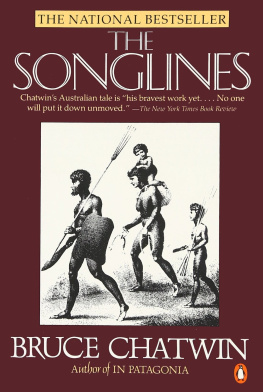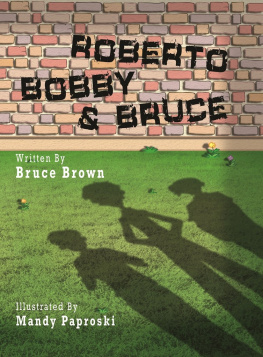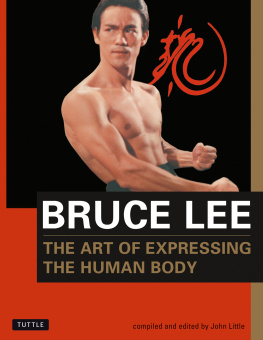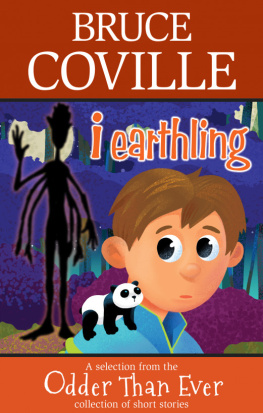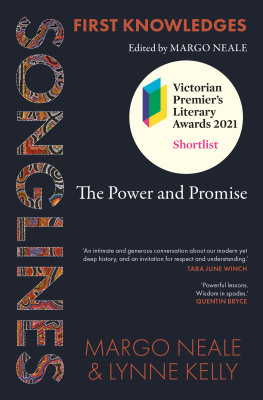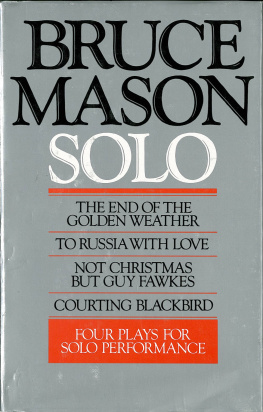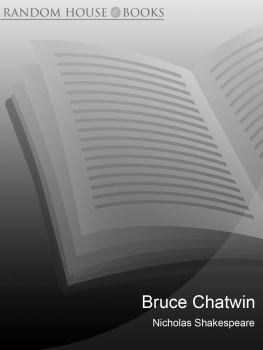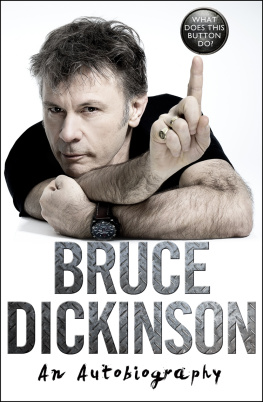Bruce Chatwin - The Songlines
Here you can read online Bruce Chatwin - The Songlines full text of the book (entire story) in english for free. Download pdf and epub, get meaning, cover and reviews about this ebook. year: 2012, publisher: Random House, genre: Detective and thriller. Description of the work, (preface) as well as reviews are available. Best literature library LitArk.com created for fans of good reading and offers a wide selection of genres:
Romance novel
Science fiction
Adventure
Detective
Science
History
Home and family
Prose
Art
Politics
Computer
Non-fiction
Religion
Business
Children
Humor
Choose a favorite category and find really read worthwhile books. Enjoy immersion in the world of imagination, feel the emotions of the characters or learn something new for yourself, make an fascinating discovery.
- Book:The Songlines
- Author:
- Publisher:Random House
- Genre:
- Year:2012
- Rating:5 / 5
- Favourites:Add to favourites
- Your mark:
- 100
- 1
- 2
- 3
- 4
- 5
The Songlines: summary, description and annotation
We offer to read an annotation, description, summary or preface (depends on what the author of the book "The Songlines" wrote himself). If you haven't found the necessary information about the book — write in the comments, we will try to find it.
The Songlines — read online for free the complete book (whole text) full work
Below is the text of the book, divided by pages. System saving the place of the last page read, allows you to conveniently read the book "The Songlines" online for free, without having to search again every time where you left off. Put a bookmark, and you can go to the page where you finished reading at any time.
Font size:
Interval:
Bookmark:

Contents
The songlines are the invisible pathways that criss-cross Australia, ancient tracks connecting communities and following age-old boundaries. Along these lines Aboriginals passed the songs which revealed the creation of the land and the secrets of its past. In this magical account Chatwin recalls his travels across the length and breadth of Australia seeking to find the truth about the songs and unravel the mysteries of their stories.
Bruce Chatwin was born in Sheffield in 1940. After attending Marlborough School he began work as a porter at Sothebys. Eight years later, having become one of Sothebys youngest directors, he abandoned his job to pursue his passion for world travel. Between 1972 and 1975 he worked for the Sunday Times, before announcing his next departure in a telegram: Gone to Patagonia for six months. This trip inspired the first of Chatwins books, In Patagonia, which won the Hawthornden Prize and the E.M. Forster Award and launched his writing career. Two of his books have been made into feature films: The Viceroy of Ouidah (retitled Cobra Verde), directed by Werner Herzog, and Andrew Grieves On the Black Hill. On publication The Songlines went straight to No. 1 in the Sunday Times best-seller list and stayed in the top ten for nine months. His novel, Utz, was shortlisted for the 1988 Booker Prize. He died in January 1989.
In Patagonia
The Viceroy of Ouidah
On the Black Hill
Utz
What Am I Doing Here
Photographs and Notebooks
with Paul Theroux
Patagonia Revisited
For Elizabeth

IN ALICE SPRINGS a grid of scorching streets where men in long white socks were forever getting in and out of Land Cruisers I met a Russian who was mapping the sacred sites of the Aboriginals.
His name was Arkady Volchok. He was an Australian citizen. He was thirty-three years old.
His father, Ivan Volchok, was a Cossack from a village near Rostov-on-Don, who, in 1942, was arrested and sent with a trainload of other Ostarbeiter to work in a German factory. One night, somewhere in the Ukraine, he jumped from the cattle-car into a field of sunflowers. Soldiers in grey uniforms hunted him up and down the long lines of sunflowers, but he gave them the slip. Somewhere else, lost between murdering armies, he met a girl from Kiev and married her. Together they drifted to a forgetful Adelaide suburb, where he rigged up a vodka still and fathered three sturdy sons.
The youngest of these was Arkady.
Nothing in Arkadys temperament predisposed him to live in the hugger-mugger of Anglo-Saxon suburbia or take a conventional job. He had a flattish face and a gentle smile, and he moved through the bright Australian spaces with the ease of his footloose forbears.
His hair was thick and straight, the colour of straw. His lips had cracked in the heat. He did not have the drawn-in lips of so many white Australians in the Outback; nor did he swallow his words. He rolled his rs in a very Russian way. Only when you came up close did you realise how big his bones were.
He had married, he told me, and had a daughter of six. Yet, preferring solitude to domestic chaos, he no longer lived with his wife. He had few possessions apart from a harpsichord and a shelf of books.
He was a tireless bushwalker. He thought nothing of setting out, with a water-flask and a few bites of food, for a hundred-mile walk along the Ranges. Then he would come home, out of the heat and light, and draw the curtains, and play the music of Buxtehude and Bach on the harpsichord. Their orderly progressions, he said, conformed to the contours of the Central Australian landscape.
Neither of Arkadys parents had ever read a book in English. He delighted them by winning a first-class honours degree, in history and philosophy, at Adelaide University. He made them sad when he went to work as a school-teacher, on an Aboriginal settlement in Walbiri country to the north of Alice Springs.
He liked the Aboriginals. He liked their grit and tenacity, and their artful ways of dealing with the white man. He had learnt, or half-learnt, a couple of their languages and had come away astonished by their intellectual vigour, their feats of memory and their capacity and will to survive. They were not, he insisted, a dying race although they did need help, now and then, to get the government and mining companies off their backs.
It was during his time as a school-teacher that Arkady learned of the labyrinth of invisible pathways which meander all over Australia and are known to Europeans as Dreaming-tracks or Songlines; to the Aboriginals as the Footprints of the Ancestors or the Way of the Law.
Aboriginal Creation myths tell of the legendary totemic beings who had wandered over the continent in the Dreamtime, singing out the name of everything that crossed their path birds, animals, plants, rocks, waterholes and so singing the world into existence.
Arkady was so struck by the beauty of this concept that he began to take notes of everything he saw or heard, not for publication, but to satisfy his own curiosity. At first, the Walbiri Elders mistrusted him, and their answers to his questions were evasive. With time, once he had won their confidence, they invited him to witness their most secret ceremonies and encouraged him to learn their songs.
One year, an anthropologist from Canberra came to study Walbiri systems of land tenure: an envious academic who resented Arkadys friendship with the song-men, pumped him for information and promptly betrayed a secret he had promised to keep. Disgusted by the row that followed, the Russian threw in his job and went abroad.
He saw the Buddhist temples of Java, sat with saddhus on the ghats of Benares, smoked hashish in Kabul and worked on a kibbutz. On the Acropolis in Athens there was a dusting of snow and only one other tourist: a Greek girl from Sydney.
They travelled through Italy, and slept together, and in Paris they agreed to get married.
Having been brought up in a country where there was nothing, Arkady had longed all his life to see the monuments of Western civilisation. He was in love. It was springtime. Europe should have been wonderful. It left him, to his disappointment, feeling flat.
Often, in Australia, he had had to defend the Aboriginals from people who dismissed them as drunken and incompetent savages; yet there were times, in the flyblown squalor of a Walbiri camp, when he suspected they might be right and that his vocation to help the blacks was either wilful self-indulgence or a waste of time.
Now, in a Europe of mindless materialism, his old men seemed wiser and more thoughtful than ever. He went to a Qantas office and bought two tickets home. He was married, six weeks later in Sydney, and took his wife to live in Alice Springs.
She said she longed to live in the Centre. She said she loved it when she got there. After a single summer, in a tin-roofed house that heated like a furnace, they began to drift apart.
The Land Rights Act gave Aboriginal owners the title to their country, providing it lay untenanted; and the job Arkady invented for himself was to interpret tribal law into the language of the Law of The Crown.
No one knew better that the idyllic days of hunting and gathering were over if, indeed, they were ever that idyllic. What could be done for Aboriginals was to preserve their most essential liberty: the liberty to remain poor, or, as he phrased it more tactfully, the space in which to be poor if they wished to be poor.
Font size:
Interval:
Bookmark:
Similar books «The Songlines»
Look at similar books to The Songlines. We have selected literature similar in name and meaning in the hope of providing readers with more options to find new, interesting, not yet read works.
Discussion, reviews of the book The Songlines and just readers' own opinions. Leave your comments, write what you think about the work, its meaning or the main characters. Specify what exactly you liked and what you didn't like, and why you think so.

